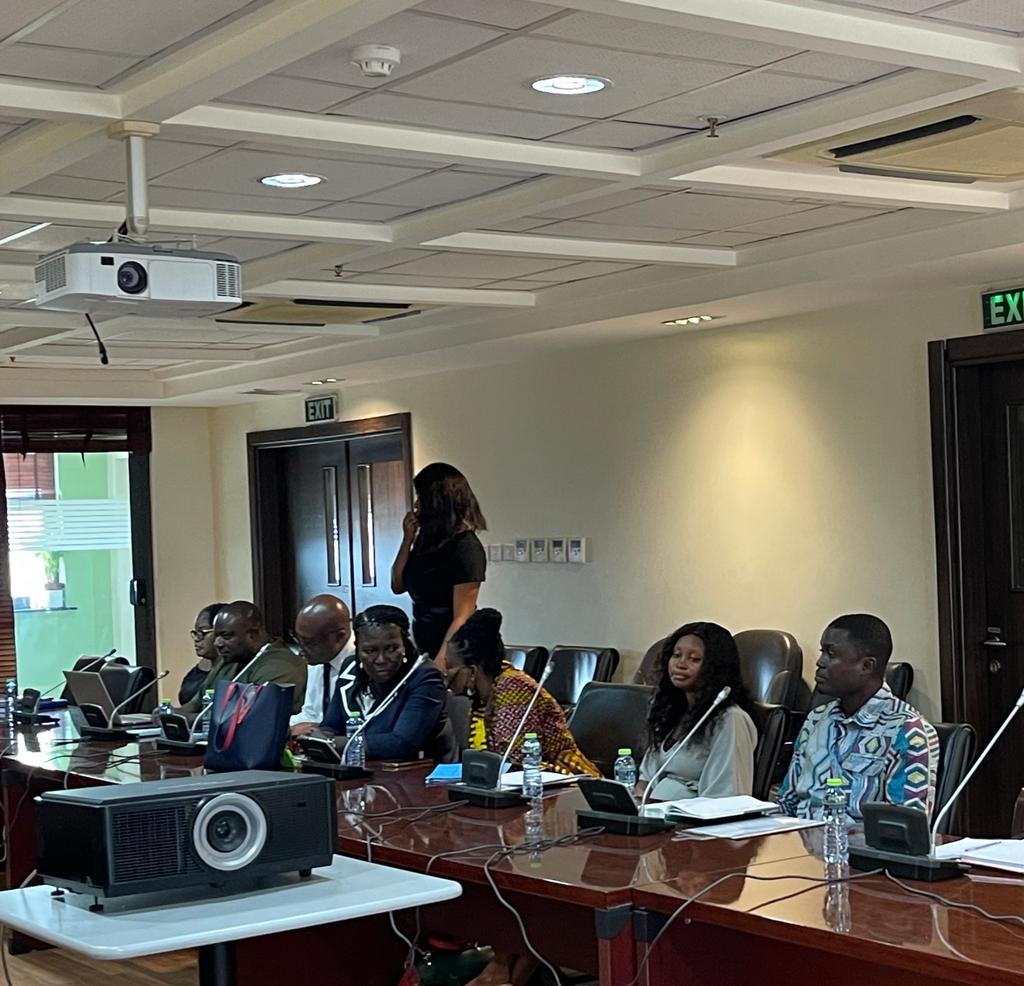INTRODUCTION
The Labour Act, 2003 (Act 651) is an Act which amended and consolidated the laws relating to
labour, employers, trade unions and industrial relations and also established the National Labour
Commission and hence provided for matters related to these.
The Law applies to all workers and to all employers except the Armed Forces, the Police
Service, the Prison Service and the Security and Intelligence Agencies.
The functions of the Commission are provided under Section 138 of Act 651, and two of the key
functions are:
1) to settle industrial disputes; and
2) to promote effective labour co-operation between labour and management.
In the performance of its functions as above, the Commission identified some issues, which need
urgent attention in order to achieve its vision of: “We will have a harmonious industrial relations
environment borne out of the firm understanding, and committed compliance with the Labour
Laws by all stakeholders to make the Ghanaian economy competitive to attract investment.”
In keeping with this objective, the Commission has as a strategy of identifying the issues that
frequently result in disputes within the medium term, i.e. every four years in order to map up
strategies to address them. Therefore, in its medium-term strategy, the Commission has
identified severing of the employment relationship through termination and dismissal as major
challenges confronting the social partners in the employment relationship.
These challenges are to the extent that a lot of disputes continue to be recorded in these areas.
As identified issues in its medium-term strategy, there is the need to address these and the
channel to do this is training and capacity building of the managers of employees. The education
will focus primarily on effective contract management as well as handling termination of
employment and dismissal from employment under the Law.
THE ISSUE
Part XVIII of the Labour Act, 2003 (Act 651) provides for Fair and Unfair Termination of
Employment. Under this Part the Law has identified what constitutes Fair Termination at section
62 and what constitutes Unfair Termination of Employment at Section 63.
The statistics of cases recorded by the National Labour Commission showed that from 2018 to
2021, i.e. over a period of four (4) years a total number of 2,663 was recorded. Out of this
number of disputes recorded over the period, 1,278 was recorded for unfair termination and
wrongful dismissals over the four-year period. The figure represents 48% of all the cases filed
during the period.
2
The effect of this is that, severing (ending) the employment relationship either through dismissal
or termination is one of the major challenges confronting the parties in the employment
relationship; hence, the need to map out strategies to deal with them mainly through sensitization
and/or education in order to manage the cost associated with these disputes both in terms of
funds and time.
The overall objective pursuant to the Commission’s mandate is to promote effective labour co-
operation between labour and management.
MAIN ISSUES IDENTIFIED
The following are some major issues identified during the Commission’s intervention in the
disputes:
Poor drafting of employment contracts
Non-existence/poor conditions of service
Capacity of some HR/IR Managers and Managers generally in handling internal
grievances
Absence of effective internal mechanisms for grievances
Poor/weak internal systems for managing discipline
Poor constitution of disciplinary committees
Lack of appreciation on the provisions of the Law on managing employment
contracts
Lack of understanding of what constitute termination of employment and
dismissal from employment
Uninformed workforce due to poor/lack of communication about organization’s
rules and regulations
THE TRAINING
In response to the challenges associated with severing the employment relationship through
termination of employment and dismissal from employment being encountered by the social
partners in the employment relationship, the National Labour Commission plans to organize a
sensitization/educational training on “Severing the Employment Relationship through Dismissal
or Termination – The Law and Practice.”
The training will focus primarily on the major issues identified from the cases handled by the
Commission, which resulted in these disputes. In addressing these issues, five main themes on
the Law and Practice will be at the two-day programme:
Overview of the Labour Act, 2003 (Act 651)
Drafting & Managing Employment Contracts
Grievance & Disciplinary Process
Procedural Fairness & the Right to a Fair Hearing
The NLC and Dispute Settlement
3
TIME & DURATION
The training will take place during the 4 th week of November or 1 st week of December 2023 for
the southern sector and it will be a two-day non-residential programme from 9am – 4pm daily.
The venue will be communicated to registered participants.
COST
The cost is GH₡2,000 per participant and GHS₡1,500 for 5 or more participant from the same
organization. This includes training materials and certificate of participation.
LEVEL OF PARTICIPATION
CEOs
HR Professionals/Consultants/Practitioners
Managers
Team Managers & Leaders
Negotiation Team Members/Representatives
Supervisors
Mediators/Arbitrators in labour administration
Union Leaders at various level
Persons who manage people at all levels
ORGANIZERS & COLLABORATORS
The National Labour Commission in collaboration with the Ghana Employers’ Association
(GEA) and Organized Labour through the Trades Union Congress (TUC).
RESOURCE PERSONS
The Resource Persons will be officials of the National Labour Commission but there will be
Panel Discussions where industry players will have the opportunity to discuss the challenges
they encounter in dealing with the issues and also share some practical applicable
knowledge/expertise.
For further details and/or registration please contact: Mrs. Cecilia Adzraku, Principal Admin. &
HR Officer, NLC on Telephone 055-8080621 or Mr. Eyram Tottimeh, Head of Public Affairs,
NLC on 0243-205908 or visit the offices of the NLC at Ridge Towers, adjacent the Greater
Accra Regional Hospital.
DEADLINE FOR APPLICATION: 20 th November, 2023.

